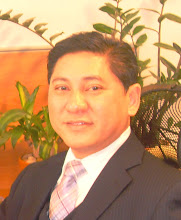Sunday, October 19, 2008
Running the bases
Running the Bases
About a year ago, we realized that our training topics were too broad and didn’t take into consideration our agents’ varying levels of expertise.
Some of our training was too basic for the veterans, and some of the material that our highly sophisticated agents appreciated was way over the new people’s heads.
So I scheduled one of our occasional think tanks to come up with a solution. One Friday morning, I drove with two of our managers who are heavily involved
in training, plus another partner, to my cabin, which is about an hour’s drive away from the office. We spent the entire day thinking and talking about one topic: how to develop our firm.
A number of ideas came out of that meeting.
One of the results of our think tank was a strategy that has helped us target our training to our agents’ varying levels of experience and expertise.
Here’s how it works¾picture a baseball diamond with the three bases and home plate:
Level 1 is first base. It involves twice-a-month training for new people (those with us less than a year). We have a 12-topic curriculum that gets repeated
because new people need to see it several times. It’s called “12 Things All New Agents Need to Know.” These meetings include lots of role-playing and repetition.
Level 2 represents second base. It’s for people in their second year, and we meet once a month.
Attendance is mandatory at Level 1 and 2 meetings because those agents are still on company financing.
Level 3, or third base, is for those agents who have been with us for more than two years but who have not reached the top 20 percent in terms of production.
This group meets every other month. For Level 3 meetings, we have speakers come in from the home office to make presentations.
Level 4 is home base! These agents represent the top 20 percent in our organization, and they meet quarterly. They have to earn their way into Level 4.
For these meetings, we hire professional speakers.
Attendance at Level 3 and 4 meetings is voluntary. But I keep track of attendance because it’s a worthwhile effort,
and I want to monitor how many people are taking advantage of this training opportunity. I’ve made our marketing department accountable for getting 35 percent of our firm (about 50 people)
into each Level 3 meeting. I’ve found that setting this specific attendance goal encourages the marketing staff to do a better job of promoting the program and selecting speakers.
We have two methods for getting feedback from these meetings¾one is a paper evaluation, and the second is a phone call from an administrator.
We ask each participant to tell us what was the best part of the level they participated in, what didn’t go so well, etc.
One of the comments we’ve received, for example, is that some of the new people wanted to do more role-playing.
So we incorporated more of it into our training.
I collect those forms and, as I do monthly reviews with our education department, we look at those statistics.
We have the highest production of new agents in the company, and we are convinced that our high retention is the direct result of very selective recruiting and much targeted training.
We’ve also seen great retention among our veterans because they are receiving excellent learning experiences right where they need them.
These think tanks, which can involve any group of managers, have been extremely productive.
Rather than having a two-hour meeting and talking about nine different issues, these focused, all-day meetings allow us to really dig deeply into a topic.
It also gives us a chance to, as the saying goes, “spend time on the business, not in the business.”
It’s an informal environment, so we wear jeans. The camaraderie is great, too. We usually have rolls and juice in the morning, work for a few hours,
then go into town and have lunch in a cafe. Then we work for a few more hours and drive back.
We’ll walk through Dan Sullivan’s strategy circles, and that helps us come away with very specific next steps.
If you’re considering doing this, keep in mind that think tanks like this can end up being so informal that you don’t come away with anything useful,
such as who does what, what can we expect, and when it is due. So take good notes and build follow-up into your calendar.
To make sure that we capture and act on the high points of our discussions, I’ll assign projects to people and let them know that
I’ll check back with them in 30 days to discuss their progress.
This is our way of asking our customer¾the agent¾what we could do better.
Here’s another, shorter, retention idea. We recognize each agent’s birthday. We mail each agent two movie tickets in a birthday card.
We also send their children birthday cards and, if they’re under age 12, a crisp $1 bill. It’s a small thing, but recognizing families helps build loyalty,
retention and a positive culture. We’ve gotten cards back from the kids written in crayon saying, “Thank you for the money.”
We want our firm to reach into the family to recognize their overall contribution to the firm’s success
Tim P. Schmidt, LUTCF FIC
Managing Partner
Thrivent Financial for Lutherans
Golden Valley, MN
Subscribe to:
Post Comments (Atom)

No comments:
Post a Comment